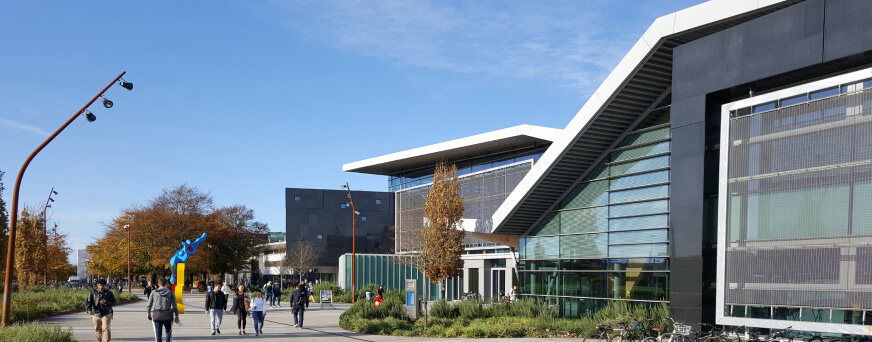Explore University of McCordsville’s Eligibility Criteria for Students Worldwide
High School Diploma, GED or equiv. International Education
84 Hours
1 Year (Self-Paced) Program
14
This course defines industrial and systems engineering; describing its place in the business world and offering a wide picture of the functional areas with some solution techniques.
This course helps you in acquiring an engineering mindset; providing you with the core knowledge and skills all engineers need to succeed. It helps you in seeing the world through the eyes of an engineer; looking at how engineers apply science and technology to solve problems facing society today.
Latest developments in engineering discusses about the latest trends in engineering which keep on adding new subjects and new versions of old subjects and techniques.
In this course, you will find a lot of the e-engineering basics presented in an easy-to-follow and friendly style, you will also get the latest on internet, web page design, and much more-stuff barely on the horizon a couple of years ago that now dominates the online landscape.
Advanced fields in engineering is the analysis and design of continuous-time and discrete-time systems using time domain and frequency domain techniques. The course includes important Structural Dynamics, Free Vibration, Dynamic Analysis And Response To Linear Systems and Reduction Of Degree Of Freedom
This course provides an integrated introduction to electrical engineering and computer science, taught using substantial laboratory experiments with mobile robots. Our primary goal is for you to learn to appreciate and use the fundamental design principles of modularity and abstraction in a variety of contexts from electrical engineering and computer science.
The course is based on introduction to the civil engineering profession and its role in the society; creative thinking and critical thinking as integral parts of the engineering decision process. The course discusses about important materials such as concrete materials, wood, iron and steel.
The traditional approach to teaching mechanical engineering has been to cover either mechanics or thermofluid mechanics. In response to the growing trend toward more general modules, Foundations of Mechanical Engineering provides a unified approach to teaching the basic mechanical engineering topics of mechanics, the mechanics of solids, and thermofluid mechanics.
This course explores the basic principles and applications of various types of internal combustion engines, with a major emphasis on reciprocating engines. It covers both spark ignition and compression ignition engine; as well as those operating on four-stroke cycles and on two stroke cycles.
This course provides an easily understandable presentation of classical thermodynamics that builds on your background of energy concepts first learned in physics and chemistry. The material is organized in a logical progression from the conservation of mass, the conservation of energy, and the second law.
This course introduces you to the ever-emerging field of mechanical engineering, giving an appreciation for how engineers design the hardware that builds and improves societies all around the world. The course balances the treatments of technical problem-solving skills, design, engineering analysis, and modern technology.
This course provides an integrated approach to finite element methodologies. The development of finite element theory is combined with examples and exercises involving engineering applications. The steps used in the development of the theory are implemented in complete, self-contained computer programs.
This course presents an in-depth study of structured designed processes and methods. Fundamental approach is that reverse engineering and teardowns offer a new better paradigm for design instruction, permitting a modern learning cycle of experience, hypothesis, understanding, and then execution. For practicing engineers interested in learning about mechanical design.
Kinematics and Dynamics of Machinery provides you knowledge to analyze the motion of machines and mechanisms. It covers a broad range of machines and mechanisms with practical applications given top consideration.
| Tuition Fee Breakdown 1 | Cost |
|---|---|
| ASSOCIATE TO BACHELORS DEGREE | $18,480 |
| Medical Insurance | $0.00 |
| Personal Expenses | $0.00 |
| Study Materials | $0.00 |
| Food Cost | $0.00 |
| Total Tuition Fee | $18,480 |
At University of McCordsville, we champion the convergence of affordability and opportunity. Our steadfast commitment to accessible education guarantees that high-quality learning is accessible to all. By eliminating financial obstacles, we grant students the freedom to thrive without the burden of overwhelming tuition costs, empowering them to carve out a bright and promising future.

| Topics Covered in This Course: | |||||||||||||||||||||||||||||||||||||||||
|
| Topics Covered in This Course: | |||||||||||||||||||||||||
|
| Topics Covered in This Course: | |||||||||||||||||||||||||||||||
|
| Topics Covered in This Course: | |||||||||||||||||||||||||||
|
| Topics Covered in This Course: | |||||||||||||||||||||||||||||||||||||||||||||||
|
| Topics Covered in This Course: | |||||||||||||||||||||||||||||||||||||||
|
| Topics Covered in This Course: | |||||||||||||||
|
| Topics Covered in This Course: | |||||||||||||||||||||||||||||||||||||
|
| Topics Covered in This Course: | |||||||||||||||||||||||||||
|
| Topics Covered in This Course: | |||||||||||||||||||||||||||||||||
|
| Topics Covered in This Course: | |||||||||||||||||||||||||
|
| Topics Covered in This Course: | |||||||||||||||||||||||||||||
|
| Topics Covered in This Course: | |||||||||||||||||||||||||||||
|
| Topics Covered in This Course: | |||||||||||||||||||||||||||||
|
“Every minute spent under the guidance and supervision of the University of McCordsville was worth it for a student like me.”

“An amazing online platform, supportive staff, and valuable career resources. I highly recommend the University of McCordsville.”

“Scholarship opportunities, personalized support, and impactful learning. I am grateful for my journey at the University of McCordsville!”
